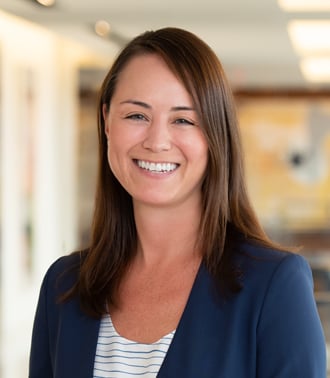"Too Big to Be Material" or Too Little, Too Late
If False Claims Act (FCA) jurisprudence could be set to music, then materiality would surely have been the song of the summer this year. In another case touching on the relevance of government payment after learning of alleged bad behavior, the Department of Justice (DOJ) has now added its voice to the chorus with an amicus curie brief on an Eleventh Circuit appeal, United States ex rel. Ruckh v. Salus Rehabilitation, No. 18-10500. In its brief, DOJ wades into the issue of whether courts should give more weight to the government's actions subsequent to learning about a false claim, or focus the "ultimate inquiry" on "how the government would have responded at the time of the relevant transaction."
DOJ's brief concerns the relator's appeal of a Middle District of Florida FCA decision vacating the jury's $350 million verdict on materiality grounds. United States ex rel. Ruckh v. Salus Rehabilitation, Case No. 8:11-cv-1303-T-23TBM. The relator had filed an FCA complaint against the skilled nursing provider Salus Rehabilitation, alleging that Salus: (1) artificially inflated Medicare patients' Resource Utilization Group (RUG) scores to yield increased Medicare payments; and (2) failed to provide care plans for Medicaid patients as required under Florida Medicaid rules, as part of a scheme to keep the cost of care for Medicaid patients down, to enhance the profitability of Florida Medicaid's set rate for skilled nursing.
After trial, a jury awarded an astonishingly large verdict (in fact, DOJ reports only seven other FCA recoveries clocking in higher since 2014). Then, in a crushing reversal of fortune for the government and relators, the district court ruled that the very basis of the relator's complaint—that Salus both increased Medicare patients' RUG scores and failed to provide sufficient care to Medicaid patients to increase Salus' profits—was immaterial to the government's decision to pay, and threw out the verdict. The court reasoned that these allegations could not possibly be material because the government kept reimbursing Salus even after they were discovered.
Surprising no one, the relator appealed, and with this brief, DOJ has entered the fray as well. The crux of DOJ's argument is that the government must weigh the cost of enforcement against possible recoveries. According to DOJ, the district court's decision was especially flawed because it reversed the jury's verdict, which DOJ believed aligned with the Supreme Court's holding on materiality in Escobar. DOJ argues that Escobar stands for the proposition that the materiality inquiry should focus on the contemporary evidence bearing on the government's reimbursement or payment decision at the time the false bill was submitted. DOJ argues that subsequent events, such as the government's later enforcement measures, are only relevant if they illuminate some part of that initial transaction. DOJ further argues that the district court was wrong to overturn the jury's reasonable factual determination that the initial payment was more probative of FCA liability than the later enforcement.
DOJ's brief raises an interesting issue: how should juries (and judges) treat cases like this one with allegations of widespread fraud, where enforcement could be uneven, and it is in the interest of the government to maintain payment for necessary services during an ongoing investigation? If the fraud in those cases is not considered material because of DOJ's delay in enforcement, that could create a new category of cases where the fraud is, as DOJ put it, "too big to be material." On the other hand, defendants would do well to remind judges and juries that they can consider the government's enforcement actions, or lack thereof, as probative evidence of materiality—which the Court clarified in Escobar to mean looking at the likely or actual effect of the allegedly false claim on the government's actions.
Although the posture of this case may be unique, the questions at issue certainly are not (think, for example, of the Ninth Circuit's take on this same issue in July). We can expect that DOJ will continue to chime in until the questions swirling around government payment are finally settled once and for all—at this rate, it seems we may need the Supreme Court to put us all on the same sheet of music.
© Arnold & Porter Kaye Scholer LLP 2018 All Rights Reserved. This blog post is intended to be a general summary of the law and does not constitute legal advice. You should consult with counsel to determine applicable legal requirements in a specific fact situation.

